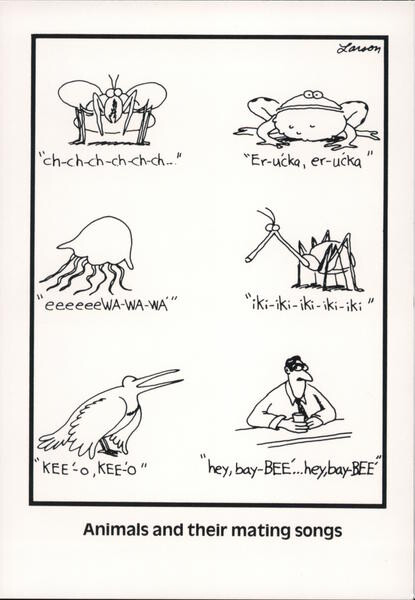The view of evolution is becoming more nuanced at the highest levels. But the impression of evolution often springs from a very low level exposure to a very general, introductory course in biology.
This excerpt [with my bolding] from my reading in Iain McGilchrist’s The Matter With Things sheds some light on just how random the process might actually be, citing molecular biologist, James A. Shapiro:
Everything depends on an organism’s capacity to be flexible and responsive to its environment, just as the environment, both living and non-living, is responsive to organisms. It is this combination of interlocking responses that ensures stability. ‘There is now good experimental evidence’, write Jablonka and Lamb, ‘as well as theoretical reasons, for thinking that the generation of mutations and other types of genetic variation is not a totally unregulated process.’184 A seminal paper asserts that ‘not all genome changes occur at random and that cells possess specific mechanisms to optimize their genome in response to the environment’185 – not even the gene actively optimising the cell, but the cell actively optimising its genes. In a now famous paper in Nature it was claimed that ‘cells may have ways of choosing which mutations occur’, and they can ‘learn from experience’.186 Another has shown that ‘bacteria that have lost their flagella through deletion of the relevant DNA sequence can evolve the regulatory networks required to restore flagella and so restore motility in response to a stressful environment within just four days’.187
In Shapiro’s phrase, cells and organisms have evolved to become, ‘cognitive (sentient) entities that act and interact purposefully to ensure survival, growth and proliferation’.188 Evolution itself is an ‘intelligent’ process (he describes it as not only ‘cognitive’ and ‘sentient’, but ‘thoughtful’). According to him, a twenty-first-century view of evolution implies
a shift from thinking about gradual selection of localized random changes to sudden genome structuring by sensory network- influenced cell systems … It replaces the ‘invisible hands’ of geological time and natural selection with cognitive networks and cellular functions of self-modification. The emphasis is systemic rather than atomistic, and information-based rather than stochastic [random].189
This is not only plausible, but no form of ‘heresy’. According to Denis Noble, Darwin ‘was concerned that he did not know the origin of variation and he acknowledged the existence of other mechanisms, including the inheritance of acquired characteristics.’190 In The Origin of Species, he had written:
I placed in a most conspicuous position – namely, at the close of the Introduction – the following words: ‘I am convinced that natural selection has been the main but not the exclusive means of modification.’ This has been of no avail. Great is the power of steady misrepresentation; but the history of science shows that fortunately this power does not long endure.191
184 Jablonka & Lamb 2005 (80).
185 Jack, Cruz, Hull et al 2015 (emphasis added).
186 Cairns, Overbaugh & Miller 1988. See also Foster 1998; and Goodwin 1994.
187 Taylor, Mulley, Dills et al 2015. The paper is cited by Noble (2017), who continues: ‘Specifically, Taylor et al show that deletion of FleQ (Flagellar transcriptional regulator) in Pseudomonas fluorescens, and starvation of the bacteria, produces mutations that enable the regulatory role to be taken over by a different pathway, normally involved in nitrogen uptake and assimilation. The genes required to produce flagella are then reactivated by the new regulatory pathway. The authors interpret their work as showing how selection can rapidly produce this kind of substitution to restore activation of flagella genes. But, equally clearly, the mutations are targeted in a remarkably precise way. They are not randomly occurring anywhere in the genome’ (emphasis added).
188 Shapiro 2011 (143).
189 ibid (146).
190 Noble 2017.
191 Darwin 1872 (421).

